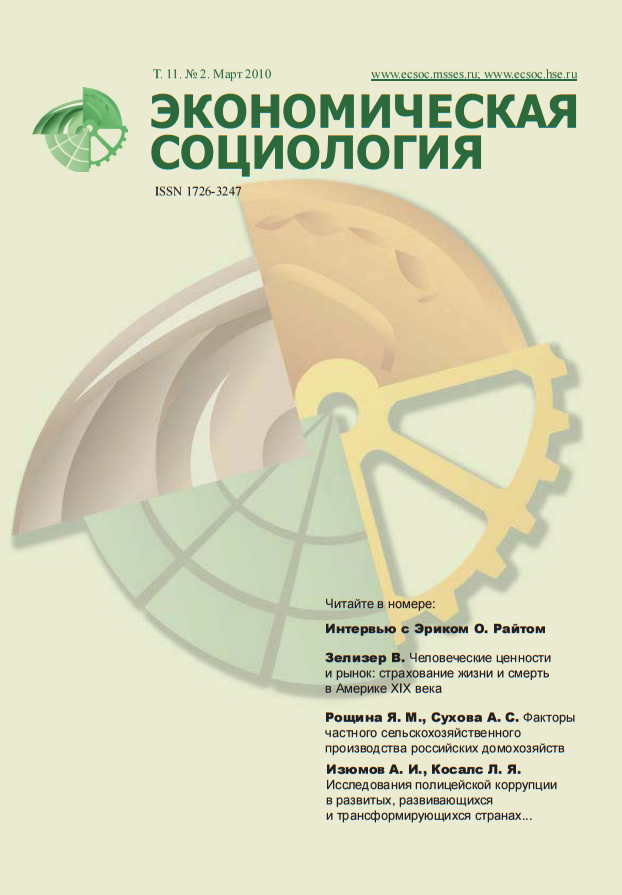Human Values and the Market: The Case of Life Insurance and Death in 19th-Century America
translated by E. Berdysheva
Abstract
Qualitative analysis of historical data concerning the diffusion of life insurance in the United States during the 19th century helps to explore the problem of establishing monetary equivalents for those aspects of the social order, such as death, that are culturally defi ned as above fi nancial relationships. The fi nancial evaluation of a man’s life introduced by the life insurance industry was initially rejected by many as a profanation which transformed the sacred event of death into a vulgar commodity. By the latter part of the 19th century, the economic defi nition of the value of death became fi nally more acceptable, legitimating the life insurance enterprise. However, the monetary evaluation of death did not desacralize it; life insurance emerged as a new form of ritual with which to face death.













